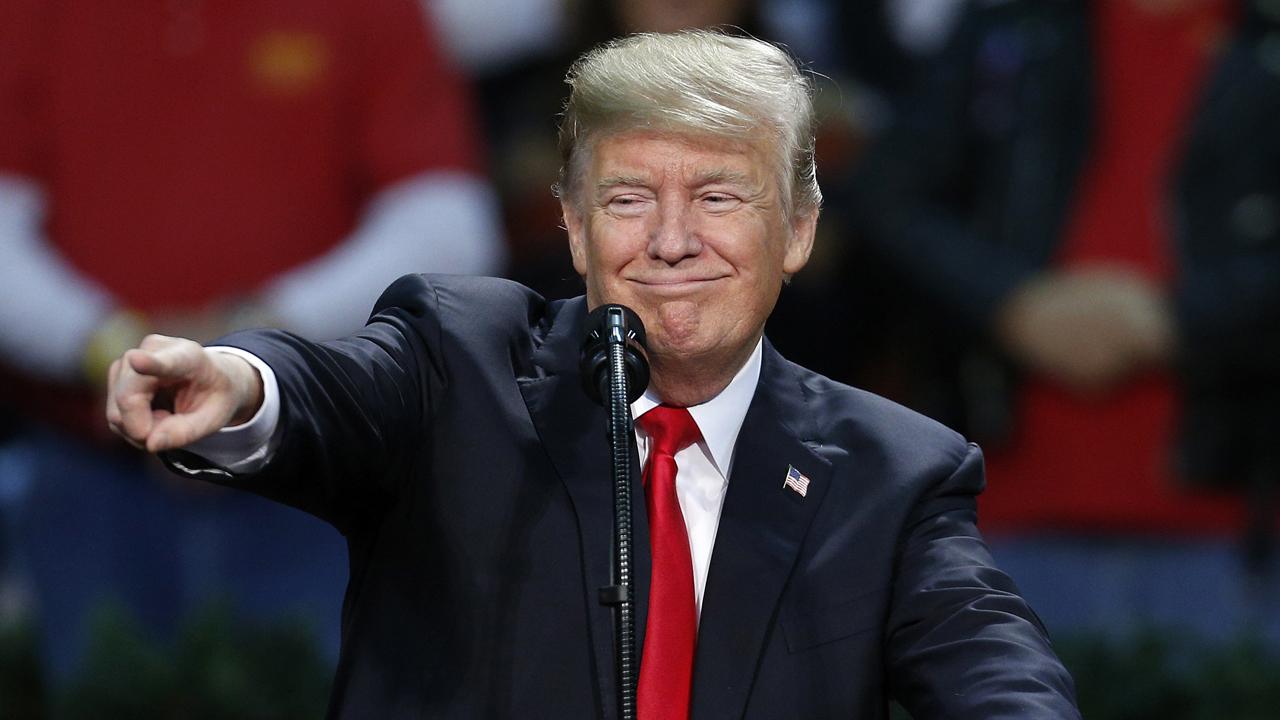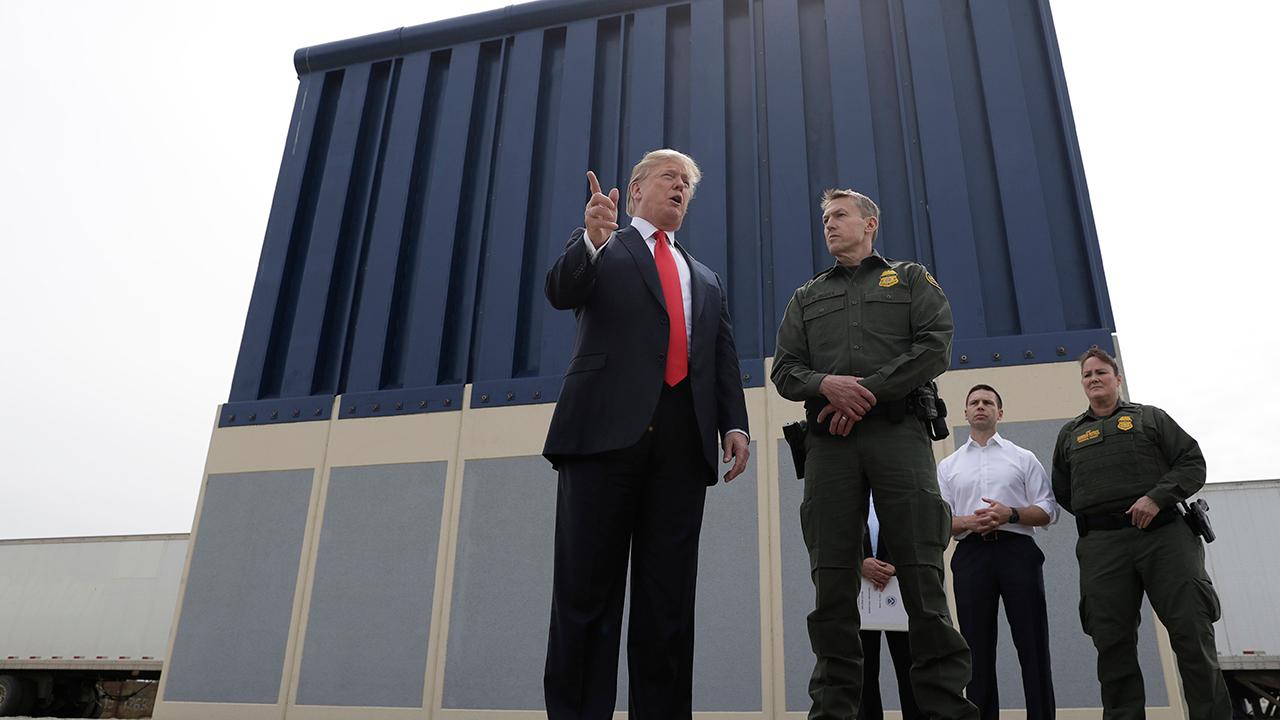Trump’s Mexico tariffs cause USMCA trade deal concerns in business community: ‘A grave error’
President Trump’s impending tariffs on Mexican imports have drawn criticism from some in the business community who have expressed concern over their potential consequences on the new trade deal between the U.S., Canada and Mexico.
Trump announced Thursday that the U.S. would impose a five percent tariff on incoming Mexican products on June 10 as a result of illegal immigration and threatened to raise it further “until the Illegal Immigration problem” is resolved.
The president, in a separate statement via the White House, insisted that Mexico had the means to stop the illegal crossings and should intervene.
“If the illegal migration crisis is alleviated through effective actions taken by Mexico, to be determined in our sole discretion and judgment, the Tariffs will be removed,” he said.
He added that “if the crisis persists,” tariffs will be raised to 10 percent on July 1, 15 percent on Aug. 1, 20 percent on Sept. 1 and 25 percent on Oct. 1.
Former New York City Mayor Mike Bloomberg penned an op-ed on Bloomberg.com on Friday that was titled “Stop Trump on Trade.” In the article, Bloomberg called Trump’s recent tariff announcement on Mexican imports a “radical and disturbing development.”
“The administration plans to harm businesses north and south of the border, and to impose additional new taxes on U.S. consumers, not to remedy a real or imagined trade grievance but to force Mexico to curb migration to the U.S.,” the billionaire wrote.
The American Automotive Policy Council (AAPC) released a statement Friday from their president former Missouri Gov. Matt Blunt, saying that the tariffs would challenge the United States-Mexico-Canada Agreement (USMCA).
“We are strong supporters of the administration’s United States Mexico Canada Agreement because it makes significant improvements to the NAFTA, but it relies on duty free access to be successful,” the statement said. “The imposition of tariffs against Mexico will undermine its positive impact and would impose significant cost on the US auto industry.”
The Trump administration has encouraged House Speaker Nancy Pelosi to take up the USMCA, which is a new trade deal that is designed to replace NAFTA. The White House on Thursday gave a formal warning to Congress that final USMCA language is forthcoming.
The Business Roundtable, which consists of chief executive officers of top U.S. companies, called Trump’s planned tariffs “a grave error” and said they would “jeopardize the prospects” of USMCA.
“Unilateral tariffs on all Mexican imports will not solve the urgent problems of securing our border and fixing our broken immigration system,” the statement read. “We urge the Administration to engage constructively with our neighbors and allies to resolve trade, migration and security issues in ways that will benefit Americans, not cause economic damage.”
The National Association of Manufacturers (NAM) said that they were also concerned about the country’s “broken immigration system” but stressed the “devastating consequences” the tariffs would wreak on U.S. manufacturers and consumers.
“We continue to urge the administration and Congress to work together to address this crisis because the problem will not be solved just by blaming other countries,” NAM said in a statement. “Intertwining difficult trade, tariff and immigration issues creates a Molotov cocktail of policy, and America’s manufacturing workers should not be forced to suffer because of the failure to fix our immigration system.”
They, too, aired concern for the USMCA, saying they don’t want to see the “landmark deal—and the 2 million manufacturing jobs that depend on North American trade—in jeopardy.”
CLICK HERE FOR THE FOX BUSINESS APP
Moody’s Investors Service’s Associate Managing Director Elena Duggar said in a statement that the tariffs announcement “adds uncertainty in a global environment of already elevated trade tensions.”
The tariffs “would be credit negative” for the nation’s auto sector and they’d boost costs “for US consumers as Mexico is the US’s largest supplier of agricultural imports,” Duggar said.
Fox Business’s Joe Williams, Kathleen Joyce, Edward Lawrence and Jennifer Schonberger contributed to this report.





















